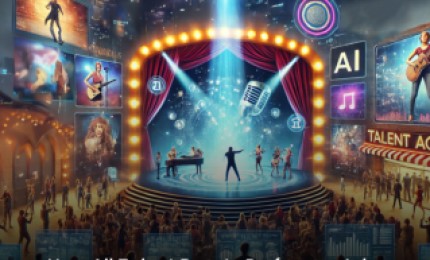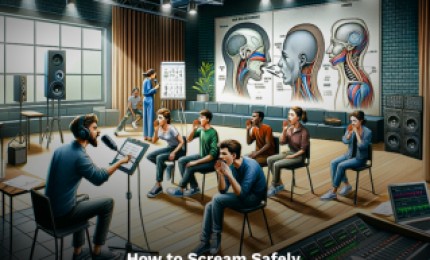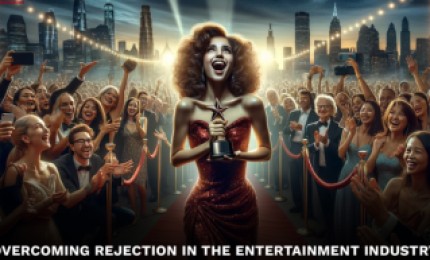The film industry is undergoing a transformative shift with the integration of artificial intelligence (AI) in movie production, stirring both innovation and controversy. Recent films like Late Night With the Devil and Civil War have spotlighted AI's role in cinema, showcasing its potential to enhance storytelling while also sparking debates over its implications for traditional filmmaking roles.
Late Night With the Devil, a found-footage film set in the 1970s, utilized AI to create cutaway graphics, including a notably contentious image of a dancing skeleton. This decision led to uproar among some viewers and hinted at a possible boycott, although it ultimately did not transpire. The film’s directors, Cameron and Colin Cairnes, defended their use of AI, stating that the AI-generated images were refined by human artists to fit seamlessly into the film’s vintage aesthetic.
Similarly, A24’s Civil War faced backlash for using AI to generate postapocalyptic scenes, with inaccuracies in landmark depictions causing concern among fans. These instances highlight a growing sensitivity and skepticism towards AI-generated content within the film community.
Despite the public controversies, AI tools are being quietly embraced behind the scenes in many production areas—from writers' rooms to visual effects (VFX) departments. Industry veterans like David Stripinis, who has worked on major films like Avatar and Man of Steel, reveal that while many are using AI, there is hesitance to openly admit it due to fears of backlash from traditional artists and potential legal complications.
David Defendi, a French screenwriter and founder of Genario, echoes this sentiment, suggesting that AI provides a competitive edge, yet acknowledging the industry's cautious approach to its adoption.
The debate intensifies when discussing AI’s role in potentially replacing traditional jobs. For instance, concept and graphic artists traditionally responsible for tasks now being automated by AI face uncertain futures. This concern extends to other areas like dubbing and subtitling, which are being revolutionized by AI technologies capable of producing lip-synced dubs in multiple languages.
At the Cannes Film Festival, the presentation of AI-dubbed trailers by XYZ Films highlighted AI's potential to broaden the global reach of films at reduced costs, showcasing technology from companies like Flawless that promise high-quality, multilingual dubbing.
As AI reshapes various facets of film production, legal and ethical questions surface, particularly regarding copyright and the originality of AI-generated content. Industry leaders emphasize the importance of establishing legal frameworks to ensure that AI tools are used responsibly and do not infringe on intellectual property rights.
While some view AI as a threat to traditional filmmaking roles, others see it as an opportunity to enhance creative processes and generate new jobs. VFX supervisor Jim Geduldick, for instance, advocates for the use of AI, emphasizing its potential when trained on proprietary data to avoid legal issues.
Charles Rivkin, CEO of the Motion Picture Association, remains optimistic about AI’s role in cinema, suggesting that it could unlock new creative potentials and job opportunities, provided that appropriate safeguards are in place.
As AI continues to evolve within the film industry, it presents both challenges and opportunities. Balancing innovation with respect for traditional filmmaking practices and roles will be key to harnessing AI’s potential responsibly. The ongoing dialogue between technology enthusiasts and traditionalists will likely shape the future of cinema in profound ways.
For more insights and updates on the latest trends in entertainment, connect with All Talent today.

"Revolutionizing Performer Jobs Through Technology" In today’s digital age, the entertainment industry has transformed significantly, shifting from traditional in-person auditions...
Read Blog
So, you want to be an actor? Maybe you've dreamed about seeing your name in lights since you were a kid, or perhaps you've recently discovered a passion for performing. Whatever your reasons,...
Read Blog
Safeguarding Your Voice During Intense Acting Roles Acting roles demanding extensive screaming bring significant challenges to vocal health. While portraying high emotional stakes can be rewarding...
Read Blog
As the film and television industries continue to grow rapidly in major U.S. cities like New York City, Atlanta, and Chicago, an increasing number of theater actors are exploring opportunities to...
Read Blog
Memorizing lines for an audition frequently raises questions among actors. While the query might seem straightforward, the appropriate response is layered and complex. Understanding Audition...
Read Blog
Rejection is a fact of life in the entertainment industry. For every audition that leads to success, many more don't result in a callback. If you're aiming to carve out a career in this...
Read Blog